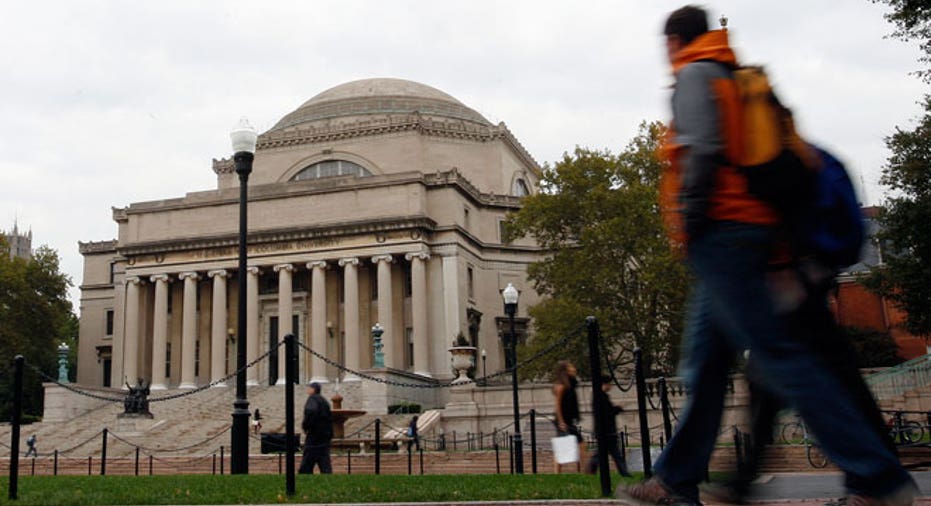4 Ways College Students Should Spend Their Tax Refund

College students expecting a refund from Uncle Sam and planning to splurge should think twice and re-evaluate their paycheck withholdings.
According to a recent survey by USAA, 56% of Millennial taxpayers ages 18 to 34 expect the same amount or a higher refund this year compared to last year. (https://www.usaa.com/inet/ent_logon/Logon)
What’s more, the survey shows 63% of Millennials who have not yet received this year’s refund plan on putting the cash towards savings, an 11% increase compared to how they allocated last year’s refund.
Although a refund may feel like “free money,” students should remember their refund was their money to begin with and it’s in their best interest to put the funds to good use, says Stephanie Kaplan, CEO of Her Campus Media. (http://www.hercampus.com/)
“It's money that is part of what you think of as your salary, wherever that comes from, not an extra bonus or gift you're getting on top of it, so it should be allocated wisely the same way your paychecks are,” she says.
Although it may be tempting to spend the entire amount on a shopping spree or springing for a new gadget, here are four ways personal finance experts recommend students use the money to benefit their financial situation.
Money Move No.1: Pay Down High Interest Debt
High interest credit card debt should be students’ first priority when it comes to using tax return funds, says Erica Sandberg, personal finance expert and editor at large for Bankrate’s Credit Card Guide. (http://www.ericasandberg.com/) (http://www.bankrate.com/?ec_id=m1035904&ef_id=yXFPy@sbKE4AAFga:20130423222636:s)
“It makes absolutely no sense to hang on to debt where your interest rate is in the 20% mark, it’s expensive--get rid of it,” she says. “That really is the best use of a tax refund because it’s just a ridiculous waste of money to hang on to it and I would apply as much as possible.”
If students have multiple sources of debt and aren’t sure how to allocate the money, focus on the debt with higher interest rates and fees, suggests Candice Cerro, consumer savings expert with PromotionalCodes.com. (http://www.promotionalcodes.com/)
“When you’ve determined the most costly, use a portion of your tax return to make a payment towards that or split the payment between both if necessary.”
Money Move No.2: Reduce School-Related Costs
Textbooks, project materials and tuition can add up for students on a budget and using tax return money to chip away at expenses is a better strategy than putting it all on a credit card or taking out a loan, says Cerro.
“School supplies like books, computers, etc. can be very pricey so it is ideal to have some money set aside to buy new books at the beginning of each semester or in case your computer is in need of replacement or updating,” she says.
To get a head start on repayment, students can also start paying down their loans while in school, suggests Chanel Greene, manager of Financial Aid at Peirce College in Philadelphia. (http://www.peirce.edu/)
“Call your lender or the Department of Education prior to sending in the payment because you want to make sure these funds go toward your unsubsidized loans first as they are accruing interest while you are in school.”
Money Move No.3: Bolster Savings/Emergency Fund
While students may not have the wherewithal to constantly contribute to a savings account for a rainy day or emergency fund, even putting a small amount aside can be a significant start.
“Let’s face it--$100 is not going to do you much good in an emergency, but it’s not the practical aspect of it…it’s going to set a pattern,” says Sandberg. “It really is about establishing smart habits that make you feel that you’re doing the right thing.”
Having a financial cushion for unexpected emergency expenses such as car repairs or medical bills can provide a huge relief in times of need, Greene says.
“If you have one class left to graduate and will not be able to receive federal loans during this period to help cover your educational expenses, use your tax refund,” she says.
Money Move No.4: Plan for Future Expenses
Especially for seniors on the brink of graduation, it’s a good idea to start planning for post-collegiate expenses and investments.
“Consider purchasing something with your end goal in mind, like a suit to wear to job interviews,” Greene says.
If seniors have not yet found a job, having a little extra cash set aside to rely upon while job searching can help relieve tension during an already stressful time, suggests Cerro.
Although students can certainly benefit from using their tax return funds to get ahead and take care of necessary expenses, the experts maintain it’s also acceptable to use a small portion to treat themselves.
“If you've carefully budgeted all year and are up-to-date on paying any bills, there is certainly nothing wrong with spending part of your tax refund on yourself and indulging a little,” says Kaplan. “It's totally ok to reward yourself for your financial prudence all year with something like a manicure or spa trip or nice meal out.”



















